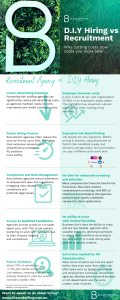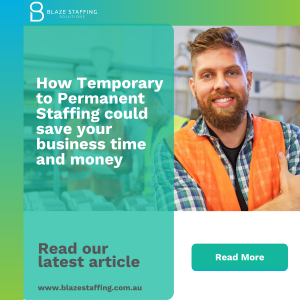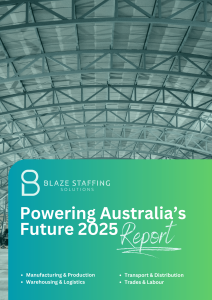There is a lot of emerging talk about partnership-driven relationships between recruitment providers and businesses, particularly in today’s landscape that is driven by greater demand, accelerated technology, and the need for agility across all industries and departments.
Market changes pose the case for a holistic hiring approach in a business climate that is strategy-driven and subject to higher levels of competition than ever before. Skills shortages and market growth have resulted in a higher demand for labour, and with increased demand comes a marketplace saturated with recruitment providers – some of which still operate with a transactional approach that focuses heavily on meeting numbers. This is due in part to maintaining traditional practices combined with industry pressures, but it’s an approach that proves detrimental to businesses looking to survive, expand and grow.
So what does the contrary – a partnership-driven – dynamic look like? And why is a partnership approach necessary in today’s business climate?
Transparency of information and communication is paramount
If you think about the doctor-patient relationship, the doctor needs to know all of the patient’s history and symptoms in order to identify problem areas as well as opportunities for additional nurturing. The same principle applies to business growth and the way it intersects with labour hire. The relationship between organisation and recruitment provider should be consultative-orientated and collaborative; essentially, the provider should act as an extension of the business to fully understand the organisation’s big picture needs and day-to-day nuances.
The results? Better insights, streamlined communication channels, a knowledgeable and proactive approach to candidate sourcing, and better return on investment on the back of a smarter, more agile recruitment approach.
Cheap and transactional will cost you in the long run
Temporary or permanent labour hire that is void of strategic application ends up costly regardless of if the business has managed to negotiate lower fees with the provider or not. Hiring methods that are positioned on the ‘back foot’ exert more time, more disruption, therefore fewer funds saved, even if this loss is not immediately quantifiable.
A 2017 Aberdeen report found that top 20% performing companies were 72% more likely “to recognise that recruiting reactively, based on emerging needs of the organisation, was failing to produce a large volume of readily available, high-quality candidates” when compared to the previous year. Savvy organisations are catching on, and the link between this cognisance and businesses that perform is becoming more and more evident.
Recruitment partners can help drive cultural change
Deloitte’s 2017 Human Capital Trends report found that nearly 80% of business leaders rated employee experience ‘important’ to ‘very important’, yet “only 22% reported that their companies were excellent at building a differentiated employee experience”.
As part of adopting a strategic, future-driven approach to hiring, recruitment partners can and should play a pivotal role in crafting and changing the business culture for the better. While a transactional approach will typically focus on sourcing specific skillsets and hitting numbers, an integrated partnership model is likely to better accommodate the complexities in need of consideration to help shape the businesses’ values and the overall environment from the bottom-up as well as the top-down. In other words, if management and strategy are on the right track with culture, it means nothing if recruitment outcomes are not indicative of such.
Further, on-paper checklists being enough to fulfil hiring requirements are well and truly outmoded, with more and more businesses thinking creatively to cultivate the benefits of mobilising soft skills, the right attributes, and hiring attitude over skillset – an approach achieved through collaboration with a partnership-focused recruitment provider.
Have you got questions about this article or about staffing needs? Phone us at Blaze Staffing Solutions on 1300 008 005 to speak with one of our recruitment specialists or email us at info@blazestaffing.com.au









